US election: Seven US Senate races to watch
- Published
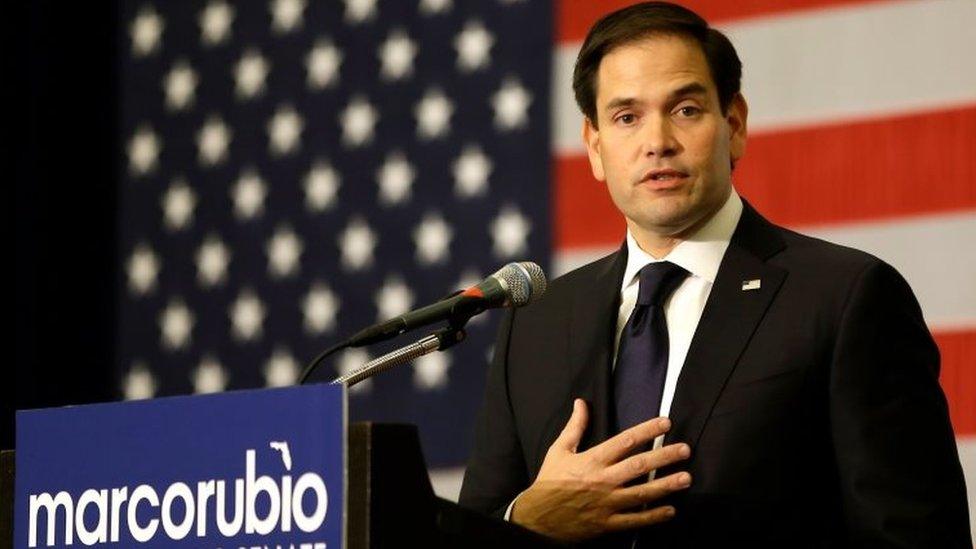
While the presidency has taken centre stage this election season, Democrats and Republicans are fighting another crucial battle at the state level.
Senate Republicans are scrambling to defend their narrow majority in a series of neck-and-neck races across the country. Democrats would need to add five seats to win back the Senate majority and only four if Hillary Clinton is elected. Tim Kaine, as vice president, would break any 50-50 tie.
Republicans welcomed the bombshell announcement on Friday that the FBI is investigating emails possibly linked to Mrs Clinton, revitalising a controversy that has long dogged the former secretary of state on the campaign trail.
But the unpopularity of Republican nominee Donald Trump has thrown some local races into turmoil, prompting dozens of Republican lawmakers to distance themselves from the candidate while also revealing deep divisions within the party.
Senate control may come down to the outcome in just a handful of states, where majority of races are locked within about three percentage points, according to an average of polls by Real Clear Politics.

North Carolina
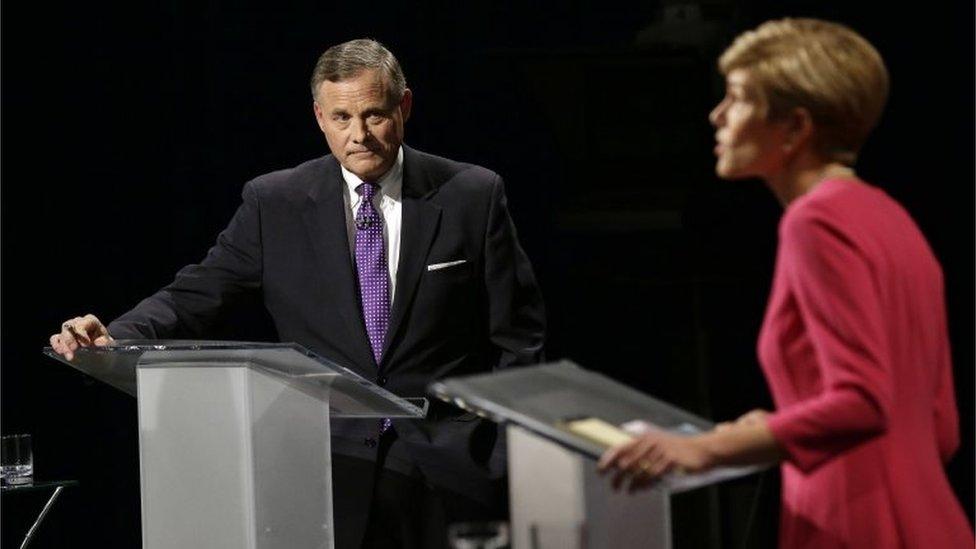
US Senator Richard Burr (L) listens to Democratic challenger Deborah Ross (R) during a TV debate
Republican incumbent Senator Richard Burr is in the midst of a dogfight with Democratic challenger Deborah Ross in the key battleground state of North Carolina. The hotly contested race is considered critical to both parties. Mr Burr is holding a razor-thin lead over Ms Ross, a former state lawmaker, by an average of one point. Ms Ross has shored up support in part thanks to high-profile campaign visits from President Barack Obama, First Lady Michelle Obama, Mrs Clinton and her running mate, Tim Kaine, as well as a strong Democratic push for voter turnout. Meanwhile, Mr Burr has been hamstrung by sharing the Republican ticket with both Mr Trump and Governor Pat McCrory, who sparked a backlash earlier this year after signing a controversial bill criticised as anti-gay. However, the Republican has maintained his support for both candidates, although a joke about gun owners shooting Mrs Clinton forced him into an apology.

Florida
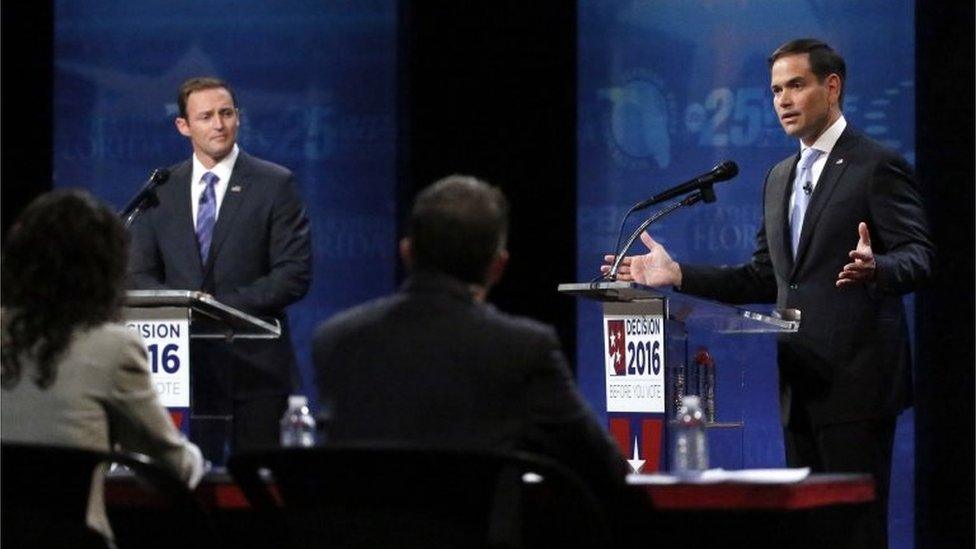
Senator Marco Rubio (R) and Representative Patrick Murphy (L) face off in their second and final debate
After a failed presidential bid, incumbent Marco Rubio is fighting Democratic opponent and Representative Patrick Murphy for his seat in the all-important swing state. Public polling suggests a tightening rice between the two candidates, but Mr Rubio has maintained a lead of nearly 6%, according to Real Clear Politics. Mr Rubio, who has been in the Senate since 2010, reversed his pledge to leave office when he announced he would seek re-election earlier this year. His reversal was largely seen as part of the Republican effort to maintain its grip on the Senate majority. But Mr Rubio has struggled to answer questions on his support for Mr Trump, whom he previously called a "con man" and a "lunatic".

New Hampshire
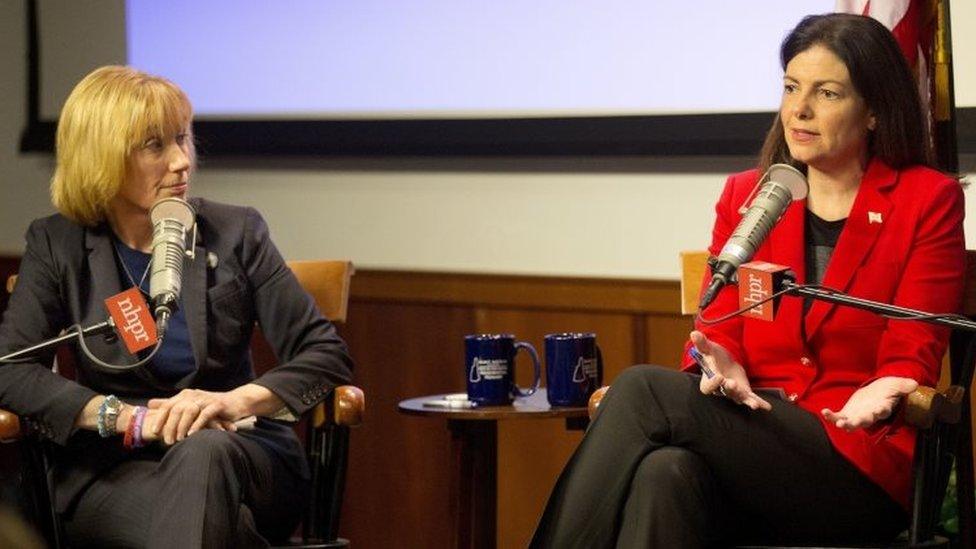
New Hampshire's Democrat Governor Maggie Hassan (L) listens as incumbent Republican Senator Kelly Ayotte speaks
All eyes are on the senate race between Republican incumbent Senator Kelly Ayotte and Democratic Governor Maggie Hassan. Ms Ayotte is locked in a dead heat with the governor 46% to 45%. Though the popular senator renounced her support for Mr Trump in the wake of a 2005 videotape in which Mr Trump bragged about groping women, she came under fire for saying he was "absolutely" a role model just days after the tape's release. She later walked back the comment, announced she would no longer vote for the Republican candidate and would instead write in a vote for his vice presidential candidate, Mike Pence. More than $95m (£78m) has already been spent on the hotly contested race in New Hampshire, according to Federal Election Commission data.

Indiana
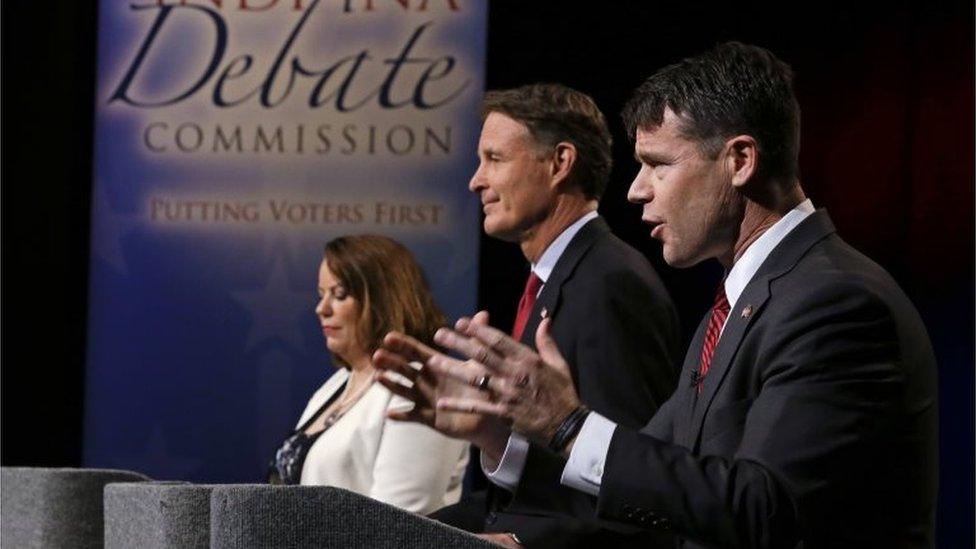
Libertarian Lucy Brenton (L), Democrat Evan Bayh (C) and Republican Todd Young (R) appear during a debate in Indianapolis
Republican three-term congressman Todd Young is in jeopardy of losing his seat to Evan Bayh, a two-term Democratic senator who retired six years ago and joined the race in July. Though Mr Young's support is bolstered by Indiana Governor Mike Pence, who is Mr Trump's running mate, the Republican incumbent is trailing Mr Bayh by nearly four points. Mr Young has channelled the populist, anti-Washington sentiment that has defined much of the 2016 election and sharply attacked Mr Bayh for his wealth and lucrative career in lobbying after leaving office.

Missouri
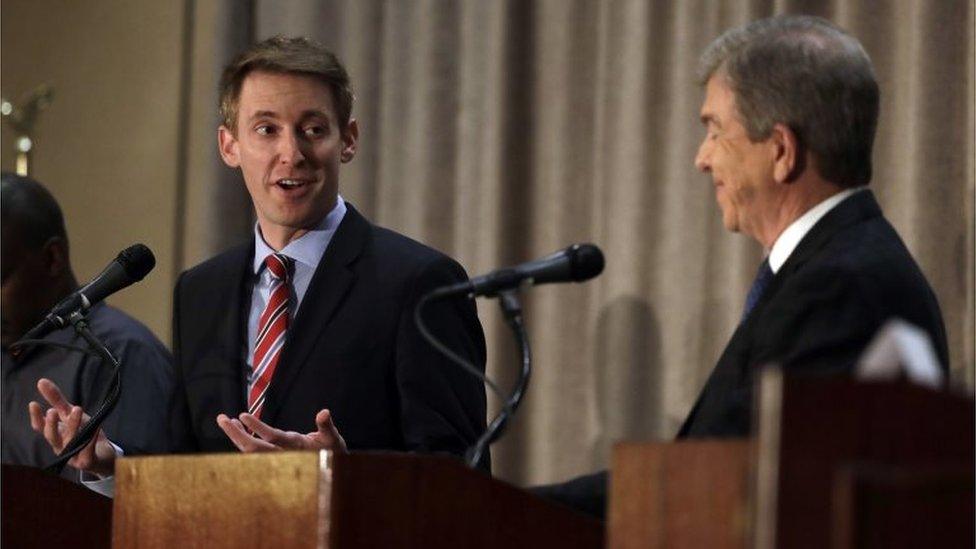
Democratic challenger Jason Kander (L) speaks to Republican incumbent Senator Roy Blunt (R) during the first general election debate in Missouri
Missouri's senate seat would be an unexpected victory for Democrats, where Republican Senator Roy Blunt is nearly tied with Jason Kander. Mr Kander, a Democratic army veteran who served in Afghanistan, has echoed Republican sentiment about changing Washington by voting for an outsider like himself. Mr Blunt, on the other hand, has touted his two-decade career as evidence that he can "get things done". Mr Blunt, a 66-year-old member of the Senate leadership, served six terms in the House before he was elected to the upper chamber.

Nevada
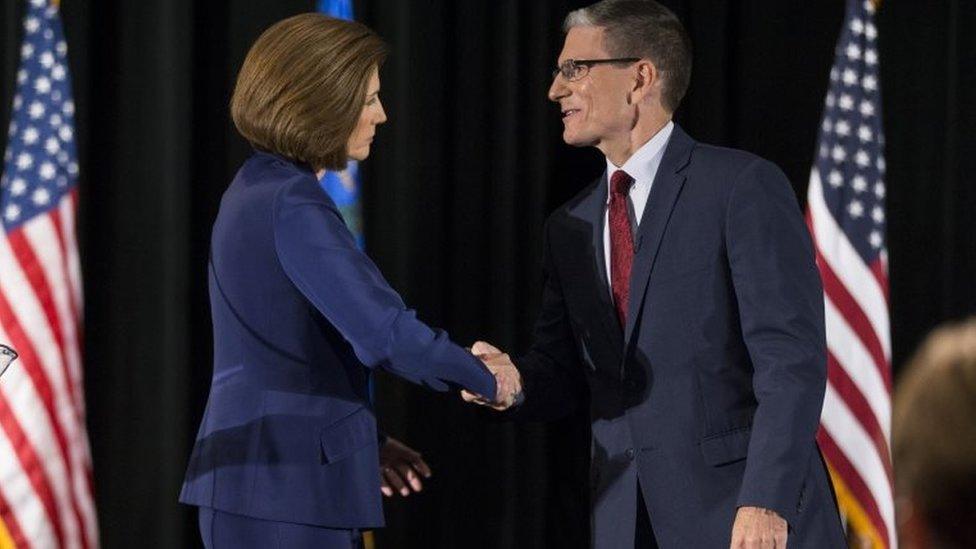
Democratic US Senate candidate Catherine Cortez Masto shakes hands with US Representative Joe Heck
Mrs Clinton is not the only candidate hoping to break barriers in this election. Catherine Cortez Masto would become the first Latina senator ever if she's able to eke out a victory over Republican Joe Heck to fill the vacancy left by five-term, US Senator Harry Reid, who is retiring. Ms Masto, a 52-year-old former state attorney general, is aiming to tie Mr Heck to Mr Trump while also appealing to the state's large Hispanic population in one of the country's most competitive senate races. Mr Heck, who has served three terms as a congressman, endorsed Mr Trump but later withdrew his support after the release of the 2005 sex boast video. The move drew ire from Trump supporters, but he has continued to downplay any connection to Republican nominee and has even refused to say for whom he will vote for on election day.

Pennsylvania
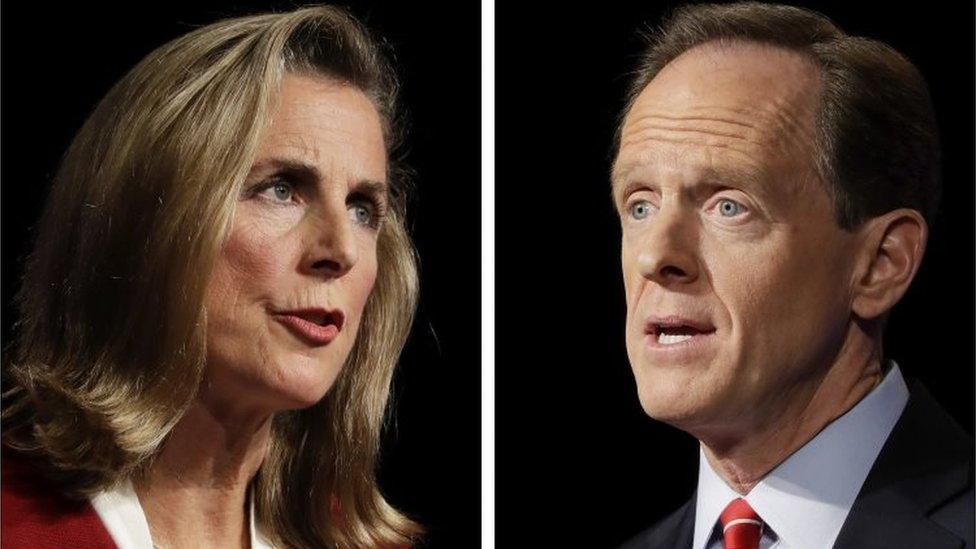
Pennsylvania US Senate candidates Democrat Katie McGinty (L) and Republican Senator Pat Toomey (R) take part in a debate at Temple University in Philadelphia
Republican incumbent Pat Toomey has also sidestepped questions about Mr Trump in a tight race to keep his seat from Democrat challenger Katie McGinty. Mr Toomey, a one-term senator, has been dogged by his ambiguous relationship with Mr Trump. He is one of the only senators running for re-election who has not said whether he plans to support his party's nominee. Ms McGinty, a former state environmental official, holds a two-point lead over Mr Toomey. The high-profile contest was declared the most expensive campaign ever for a Senate seat last week, with candidate committees and outside groups spending more than $113m (£92m) on the contest, according to the Center for Responsive Politics.

Predict the president
